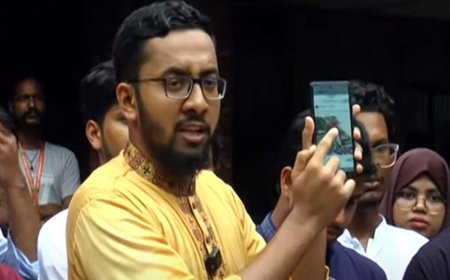From Silos to Synergy: Special Adviser Outlines Vision for Interoperable Digital Future

Faiz Ahmad Taiyeb, Special Assistant on Posts, Telecommunications, and ICT Affairs to the Chief Adviser, has criticized the fragmented nature of the country’s digital ecosystem—labeling key stakeholders such as credit card companies, the National Payment Switch Bangladesh (NPSB), mobile financial services (MFS), and payment system operators (PSOs) as "silos" obstructing the nation’s immense potential. His proposed solution lies in fostering interoperability across the country’s digital public infrastructure.
Speaking during a seminar at the Bangladesh Investment Summit held at Hotel InterContinental on Thursday, Taiyeb emphasized a comprehensive strategy anchored in robust cybersecurity legislation, upcoming reforms, and new digital policies. “The Cyber Security Act may be published as a gazette by the end of this month,” he stated. He also highlighted positive developments in the forthcoming Personal Data Protection Act, which includes provisions for data localization, platform accountability for data sharing, and greater transparency in how and where data is transferred.
To complement this legislative push, Taiyeb announced that the Hi-Tech Park Authority will revise its policies to ensure quality power supply and high-speed internet connectivity, adding that a new semiconductor policy will also be unveiled soon.
Acknowledging the infrastructural constraints faced by internet service providers (ISPs), mobile operators, and carriers, he said: “They need policy support so they can independently utilize their infrastructure.” He argued that outdated fiber policies continue to impede the growth of the digital economy, and pledged to eliminate both known and unknown barriers. "We will take steps to reduce internet costs at the regional level,” he added, revealing a plan to streamline licensing into four layers: international, infrastructure, access, and service. A full-fledged policy is expected by July.
Taiyeb clarified that these reforms are not about centralizing systems or creating something entirely new. “It does not mean we are putting all systems in one basket,” he said. “Rather, we are connecting the existing wheels to work together.” He also stressed the importance of emerging technologies such as artificial intelligence (AI), blockchain, and data governance, especially to unlock greater investment potential.
“Innovation is being misused to create unnecessary complexity for businesses,” he cautioned, lamenting the domino effect digital silos can trigger in a populous country like Bangladesh. “A glitch in the passport system affects hundreds of thousands of people at once, and data interoperability issues can have far-reaching consequences.”
Still, he offered a hopeful vision rooted in cooperation: “We are not blaming anyone. Instead, we’re committing to resolving complexities through public-private partnerships.” Stressing the importance of moving away from siloed systems, he reaffirmed the government’s commitment to data interoperability and ethical internet usage.
“In the past, these issues were kept under wraps,” Taiyeb noted. “But since the July uprising, we’ve addressed them head-on—and we’re standing firm. This is possible only because we’re standing together.”
He concluded by stating that Bangladesh’s readiness for the digital economy depends on good data governance, ethical internet use, and robust systems for secure data storage.









































































































































































































